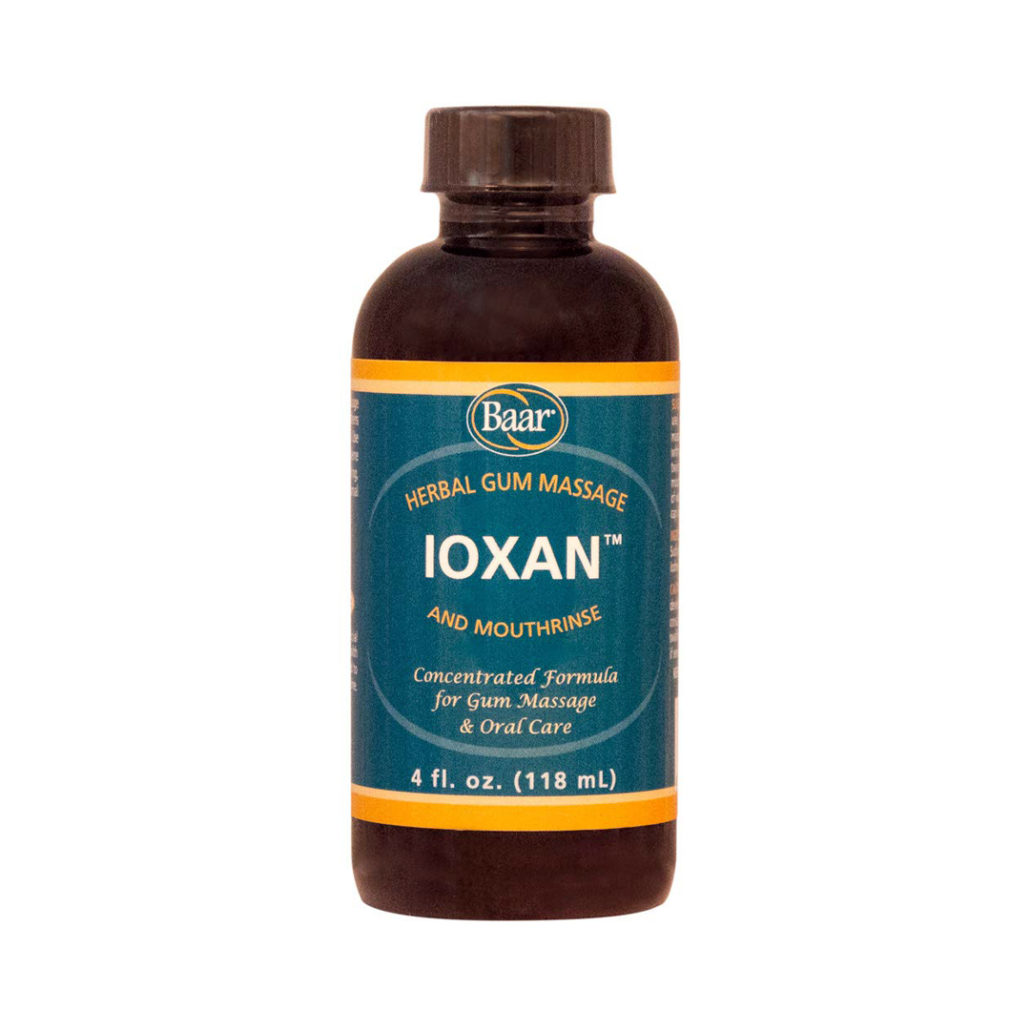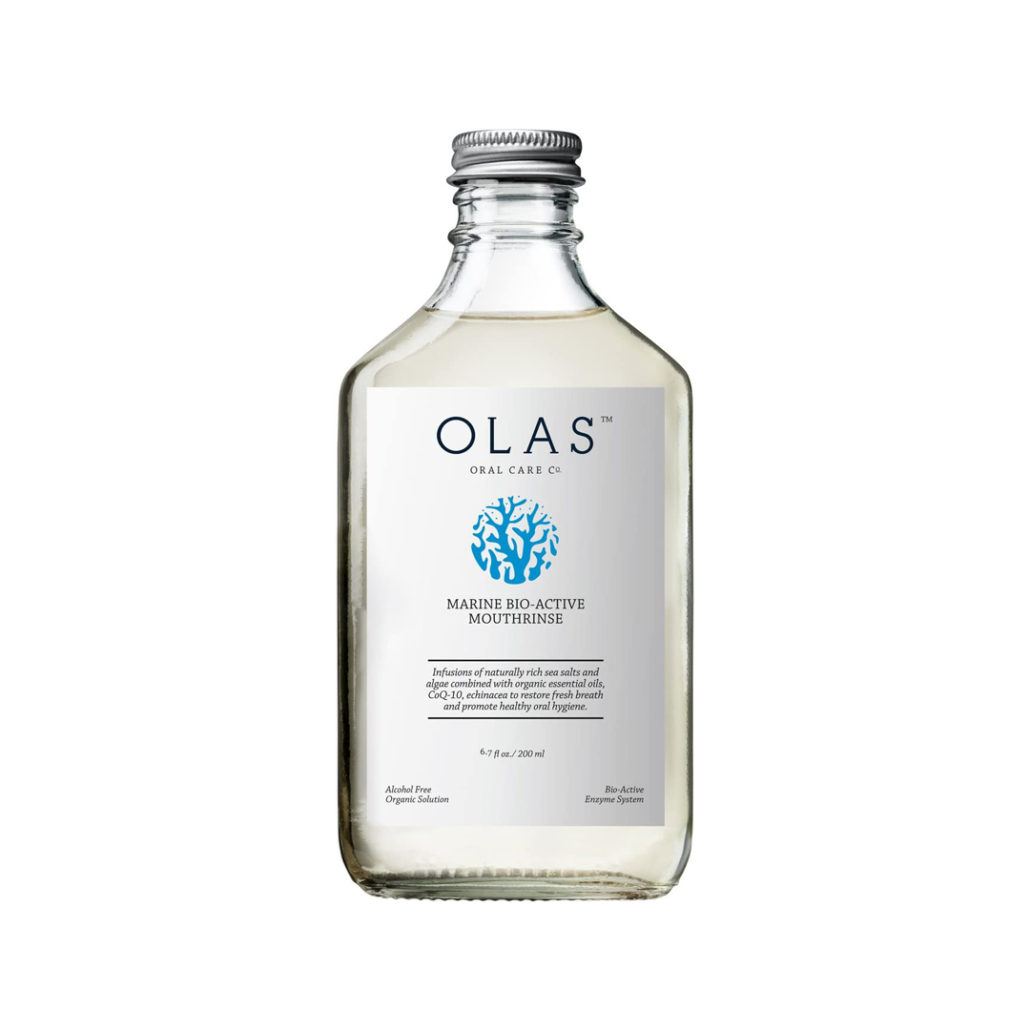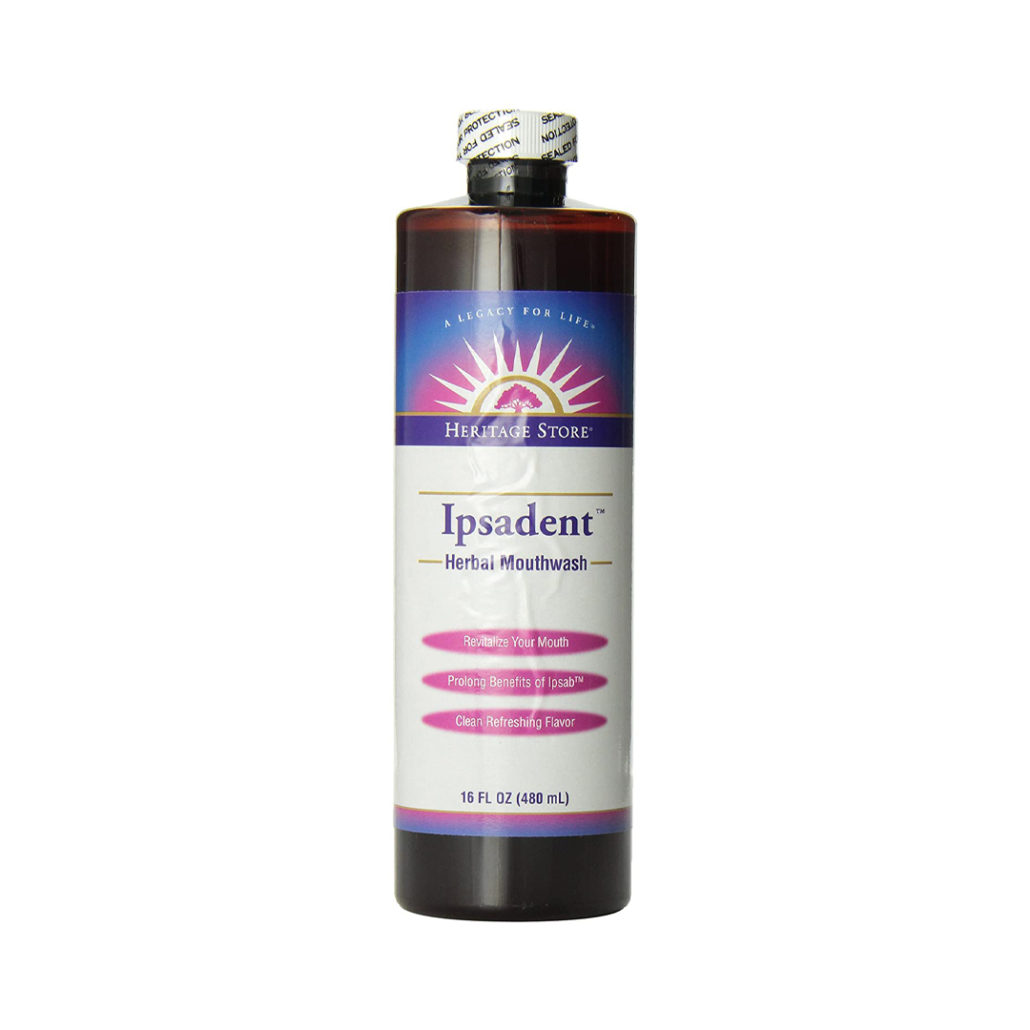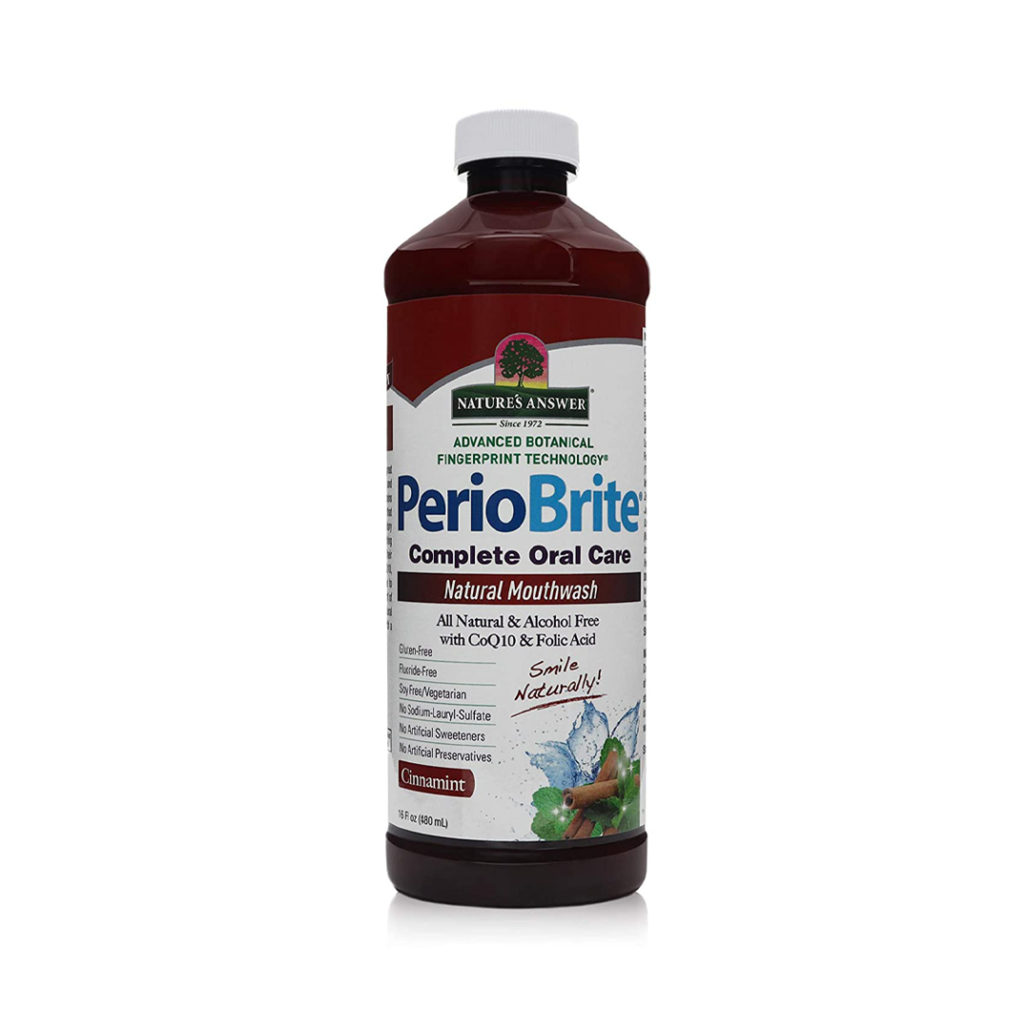6 Best Mouthwashes (and Why to Use Them): A Clinical Product Review
Our dentists tell us to brush our teeth gently twice per day, and (for Pete’s sake!) floss every day. But it seems they less frequently advise mouthwash, even with advertising galore for mouthwashes that help the breath and whiten the teeth. How did this happen? We’ll talk about the history of mouthwash and answer a few questions: Does mouthwash offer anything to our dental health? How do we know if we’re choosing one with effective ingredients? Are any mouthwashes worth the time and effort?
The answer to the last question is a definite yes, so let’s dive in.
MOUTHWASH: What, Why, and When
The brand most people picture immediately when thinking of mouthwash, Listerine, was indeed the first commercial mouth rinse brought to market. But Listerine got its start as a surgical disinfectant used by a physician named Lister. What’s more fascinating about the story is that Listerine, marketed as a mouth rinse in 1879, did not take off in popularity until the company, Lambert Pharmaceutical, gave regular bad breath a scary-sounding name: halitosis.
Prior to this, oral care was routine for most humans, but less influenced by advertising and instead guided by knowledge of medicinal plants. Cleaning one’s teeth with specific twigs or plant materials, such as licorice (anti-plaque) or prickly ash (pain-relieving), were both cleansing and soothing. Ayurveda has also used fruits such as bilberry fruit and hawthorn berry, along with oil-pulling, for positive effects on oral health.
There is a whole additional story about how the modern diet has made our attention to oral care crucial—we’re simply not taking in the same types of unprocessed foods and their unrefined nutrients as our ancestors did. In 1939, a book by Weston A. Price called “Nutrition and Physical Degeneration”, explored this connection between diet and dental health. Dr. Price traveled the world to document the dental health of unmodernized cultures, finding their nutrient intake far higher than that of Westerners eating large amounts of processed foods and refined oils.
As it turns out, a key way to set yourself up for great oral health is to have parents whose diet was extremely high in nutrients and fat-soluble vitamins—before they had children. But you can still support your oral health right now with your own nutrient-dense diet, AND oral care that includes non-toxic mouthwashes. Here are the benefits that can be gained when you start swishing with the good stuff:
- Gradual diminishing of gum tenderness: overly stimulating gums can make them sensitive.
- Better breath without that “mouthwash” smell: you’ll have natural and normal-smelling breath rather than a bouquet of peppermint and artificial flavors.
- Reduction in cavities: high-quality mouthwash improves overall oral health and that includes avoiding cavities.
Now that you’re convinced that using mouthwash can be beneficial to oral care, it’s good to know what NOT to buy when selecting your mouthwash.
Mouthwash Ingredients to Avoid
Is what’s in those popular mouthwashes really so bad? Some of them, yes. They can be linked to endocrine disruption or even cancer. Here are some ingredients in mouthwashes that could negatively affect your oral or overall health:
- Artificial dyes: mouthwash dyes like FD&C Green No. 3, D&C Yellow No. 10, and FD&C Blue No. 1 which have all been linked to liver damage.
- Parabens – these are common shelf-life enhancers but have been linked to many whole-body problems including breast cancer. Avoid parabens in all of your body-care products if you can.
- Chlorhexidine and Hexetidine – kills bacteria in your mouth—both good and bad. These have been linked to increased blood pressure, unstable heartbeat, and allergic reactions.
- Alcohol – this is what gives Listerine its “refreshing” tingle. Unfortunately, that tingle is the sensation of nearly everything inside your mouth (both good and bad bacteria) dying and your tissues drying out, which means even more mouth care later. When used as the primary or only agent of “antiseptic,” alcohol is best avoided in your mouthwash.
- Fluoride – still a lot of research is being done on fluoride in oral care products. While both sides of the fight are passionate about their research, fluoride is still not by any means a natural product to put in your mouth. For now, keep your overall diet and oral hygiene in ship-shape and skip the fluoride.
Now you know the ins and outs of mouthwash. Yet it is still difficult to find out which brands are reputable and which ones are better left on the shelf. That’s why The New York Center for Innovative Medicine conducted its own study of mouthwashes in the United States to determine which ones we could recommend.
Our 6 Mouthwashes For Oral Health Without Toxic Ingredients
1. Baar Ioxan Herbal Gum Massage

The product name alone should make this mouthwash memorable. But there’s a reason for it in the ingredients list. It is made by the Baar company, who have been making natural and healing products since 1986 after years of research and naturopathic training. Their wooded 130 acres in Pennsylvania enables the folks of Baar to gather herbs for their formulas, like the peppermint in the Ioxan Herbal Gum Massage.
Use as a tonic on gums after brushing to reduce inflammation, or dilute as a mouthwash. The unconventional blend of prickly ash bark, salt, and iodine combines traditional mouth care with modern antiseptics. This one is going in my medicine cabinet.
2. Dental Herb Company Under the Gums Irrigant

The first time I ever saw a dental irrigator was as a kid at my grandparent’s house. The strange-looking Waterpik device kind of baffled me, but clearly dental irrigators have a lot going for them. Lots of havoc can be wrought from things living under your gum line, and flossing is the way we have been taught to get up in there. Irrigation with water or a solution such as this Under the Gums Irrigant is far more gentle and also feels fun and ticklish.
This solution is only used one-half teaspoon at a time, diluted for the irrigator. The blend of echinacea, Gotu kola, eucalyptus, and lavender soothe under the gums as the irrigator flushes out bacteria that cause gingivitis and dental disease. When was the last time you thought of flossing as fun and ticklish? Exactly.
3. Essential Oxygen Organic Mouth Rinse

We endorse most oral care products made by Essential Oxygen, a woman-owned company that not only makes non-toxic products but also supports an admirable list of progressive charities. But it is the mouth rinse we love because it upends the normal order of oral hygiene: recommending that you rinse your mouth immediately in the morning to set the stage for healthy teeth. Why? Because it’s likely you woke up with a mouth full of bad oral bacteria—the result of unmoving saliva all night. It’s that same overload of bacteria responsible for “morning breath”.
Essential Oxygen recommends that, rather than swallow this bacteria with your first drink of water (or coffee for some of us), start by spitting out that saliva first. Then rinse for 60 seconds with this delightful formula designed to soothe gums with aloe vera and essential oils. Without alcohol, stabilizers or harmful additives, this mouthwash is as simple as it is effective.
4. Olas Marine Bio-Active Mouthwash

Olas has created not just an incredibly elegant bottle of mouthwash—the glass bottle is worthy of display rather than hiding in the medicine cabinet—but they’ve infused their formula with nothing less than the essence of the sea. With blue-green algae and marine collagen, this mouthwash holds a romantic ideal of returning to our oceanic roots. But does it really benefit oral health and pass the non-toxic test? Luckily for consumers, the answer is yes.
Without the addition of alcohol to create a fake-fresh feeling, Olas uses a mixture of botanical extracts like rosemary, thyme, and licorice to gently soothe your tissues. There’s a hint of menthol to brighten the aftertaste, and glycerin to ensure a smooth swish. As to those marine additions? They serve as antioxidants and help prevent plaque from building up, rounding out the benefits of this elegant mouthwash.
5. Heritage Store Ipsadent Herbal Mouthwash

For more than 50 years, a homemade formula called Ipsab was known to be a tooth and gum-healing salve. And now you can have those same benefits in a mouthwash, from the Heritage Store. What sets this mouthwash apart are the traditional Ipsab ingredients: prickly ash bark, calcium, salt, peppermint, and iodine. The prickly ash comes from a plant traditionally known as the “toothache tree”.
Prickly ash does more than just soothe sore gums, it also can help to repair and strengthen mouth tissues. This mouthwash is also intended to be a quick gum and mouth refresher when you’ve just eaten and can’t brush your teeth. I love the addition of cinnamon and clove extracts to balance the peppermint, adding some extra sophistication to the default minty baseline.
6. Nature’s Answer Periobrite Alcohol-Free Mouthwash

Cinnamon, mint, and a hint of clove are the dominant flavors in this mouthwash from Nature’s Answer. But what really makes this formula stand out is an herbal extract called phytoplenolin. Sourced from a medicinal plant used for centuries in Australia, this botanical powerhouse has antimicrobial and anti-inflammatory benefits for gum tissue.
Read the label and you’ll see how much Nature’s Answer cares about broad-spectrum herbal blends—each swish of this mouth rinse will bathe your mouth in more than a dozen herbal extracts from oregano to calendula to black walnut. Each serves a purpose, adding up to one heck of a mouthwash.
Choose The Best For Your Health: We’ll Support You
At Innovative Medicine, we genuinely believe that knowledge is power, and with that knowledge comes the potential for better health. In a perfect world, you would be able to trust that what you purchase from any producer to drink, eat, or put on your body is safe. Unfortunately, this is not always the case and as a consumer, you have been burdened with the responsibility to dig deeper and investigate what you decide to put on and in you since your health and wellness are at stake.
This burden shouldn’t exist, though, which is why we have taken it upon ourselves at Innovative Medicine to continually research, test, and provide you with the latest and scientifically supported information about everything from probiotics and Botox to magnetic clay baths and oral care products. Your health, our health, and the health of our families and communities is what drives us.
When you’re taking care of your mouth—that most intimate and important gateway to our bodies—we want you to have the best options for your mouthwash. The least toxic, most natural, and most effective oral care is crucial to your health, from teeth to heart health.
Want more product reviews like this?
Be the first to hear about our clinically-tested product reviews and take control of your health.
The post 6 Best Mouthwashes (and Why to Use Them): A Clinical Product Review appeared first on Innovative Medicine.
See how we can help you restore complete health of body, mind & spirit.
Lorem ipsum dolor sit amet, consectetur adipiscing elit, sed do eiusmod tempor incididunt ut labore et